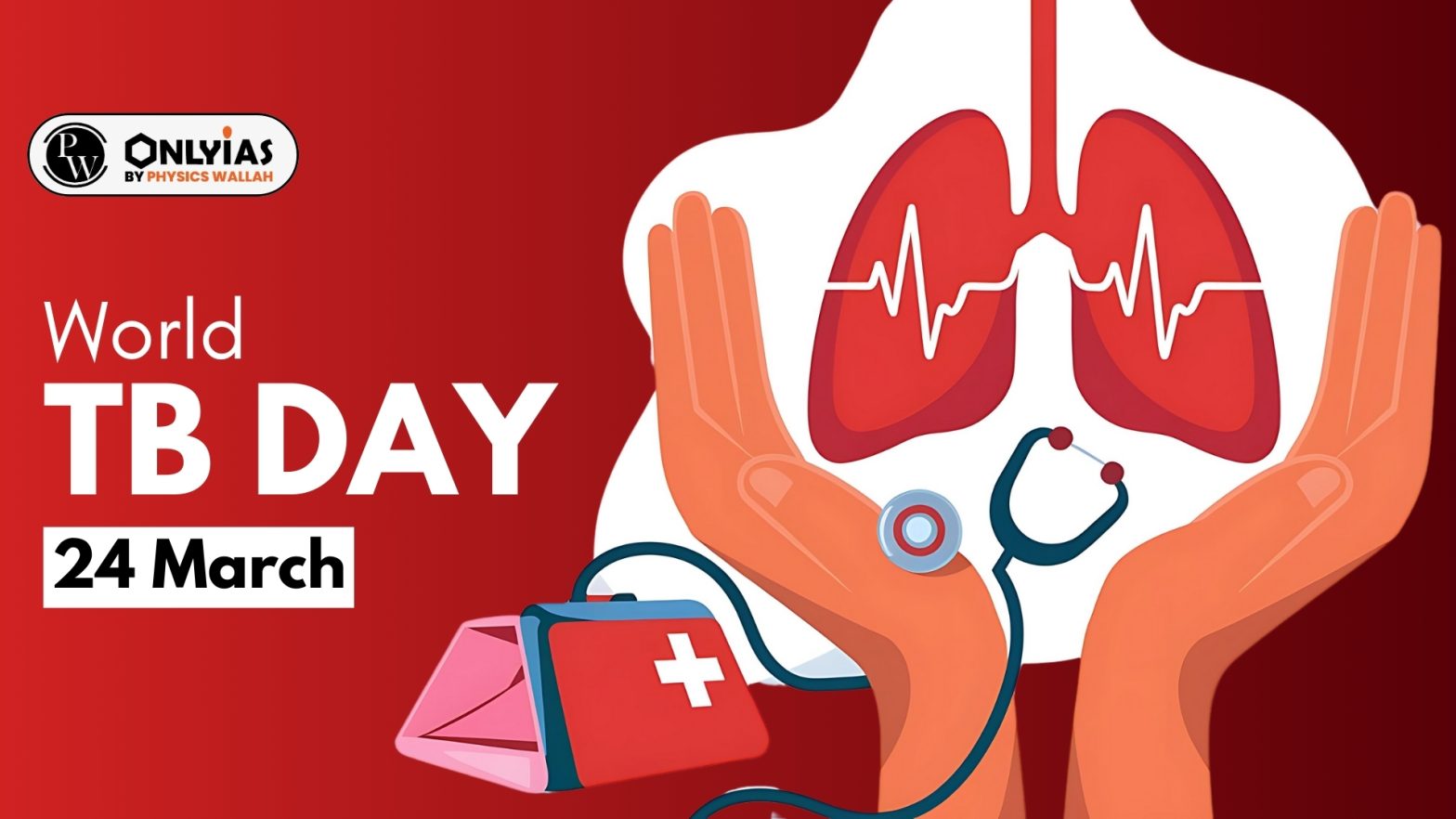
World TB Day is observed every year on March 24 to raise awareness about tuberculosis (TB)—one of the world’s deadliest infectious diseases. The day marks the historic discovery of the TB bacillus by Dr. Robert Koch in 1882, which paved the way for TB diagnosis and treatment.
Despite medical advancements, TB remains a global health crisis. According to India TB Report 2024, India accounts for a significant portion of global TB cases and has set an ambitious TB eradication target by 2025 under the National Tuberculosis Elimination Program (NTEP).
The World TB Day 2025 theme is “Yes! We Can End TB: Commit, Invest, Deliver.” This theme emphasizes the need for collective commitment, sufficient investment, and immediate action to eliminate tuberculosis worldwide.
World Tuberculosis (TB) Day is observed annually on March 24 to raise awareness about the devastating health, social, and economic impact of tuberculosis. This day celebrates the discovery of the TB-causing bacterium Mycobacterium tuberculosis by Dr. Robert Koch in 1882, which paved the way for diagnosing and treating the disease effectively.
| World TB Day 2025 Overview | |
| Event | Details |
| Name | World TB Day 2025 |
| Date | March 24, 2025 |
| Significance | Raises awareness about tuberculosis and promotes global efforts to eliminate the disease |
| First Observed | 1982 (100th anniversary of Dr. Koch’s discovery) |
| Theme | To be announced |
| Organized By | World Health Organization (WHO), Stop TB Partnership, and global health agencies |
| Objective | To raise awareness, mobilize resources, and push for policy changes to combat TB |
Every year, World TB Day carries a unique theme to emphasize different aspects of TB awareness and eradication. The World TB Day 2025 theme is “Yes! We Can End TB: Commit, Invest, Deliver”
This theme highlights the global commitment to eliminating TB by encouraging:
Tuberculosis (TB) is a highly infectious bacterial disease caused by Mycobacterium tuberculosis. It primarily affects the lungs but can also impact other organs such as the brain, spine, and kidneys. TB spreads through airborne droplets when an infected person coughs, sneezes, or talks, making it highly contagious.
TB can be categorized into two forms:
TB treatment involves a combination of antibiotics taken over a 6-9 month period. Some of the commonly prescribed TB medications include:
For drug-resistant TB (DR-TB), newer drugs such as Bedaquiline and Delamanid are used, offering shorter treatment durations and better success rates.
India has the highest TB burden in the world, accounting for nearly 28% of global TB cases. According to the India TB Report 2024, India’s TB incidence has seen a 17.7% decline from 2015 to 2023, exceeding the global average decline of 8.3%.
TB Statistics in India (2023-2024)
As per the India TB Report 2024, states like Uttar Pradesh, Maharashtra, and Bihar report the highest number of TB cases. These states have a high population density, inadequate healthcare infrastructure in rural areas, and delayed diagnosis, contributing to the rising TB burden.
To combat TB, India launched the National Tuberculosis Elimination Program (NTEP) (formerly RNTCP) under the National Health Mission. This program follows WHO guidelines to provide free TB diagnosis, treatment, and prevention services.
India is committed to achieving the “TB-Free India” goal by 2025, five years ahead of the global target (2030) set under the United Nations Sustainable Development Goals (UN-SDGs).
The One World TB Summit 2023 in Varanasi supported India’s commitment to ending TB through innovation, early detection, and community participation.
Despite progress, several barriers hinder TB elimination in India:
Despite challenges, India has made remarkable progress in TB control:
The Ni-kshay Poshan Yojana, a direct benefit transfer (DBT) scheme, provides financial aid to TB patients for nutrition support. Over ₹3,697 crore has been disbursed to 1.24 crore TB patients since 2018.
World TB Day 2025 acts as a reminder of the urgent need to end TB worldwide. While India has made significant progress, the goal of TB eradication by 2025 requires strong political commitment, innovative healthcare strategies, and increased financial investment. By focusing on early detection, quality treatment, and community support, India can achieve its TB-free vision and lead global efforts to eliminate tuberculosis.
Ready to boost your UPSC 2025 preparation? Join PW’s UPSC online courses today!

<div class="new-fform">
</div>